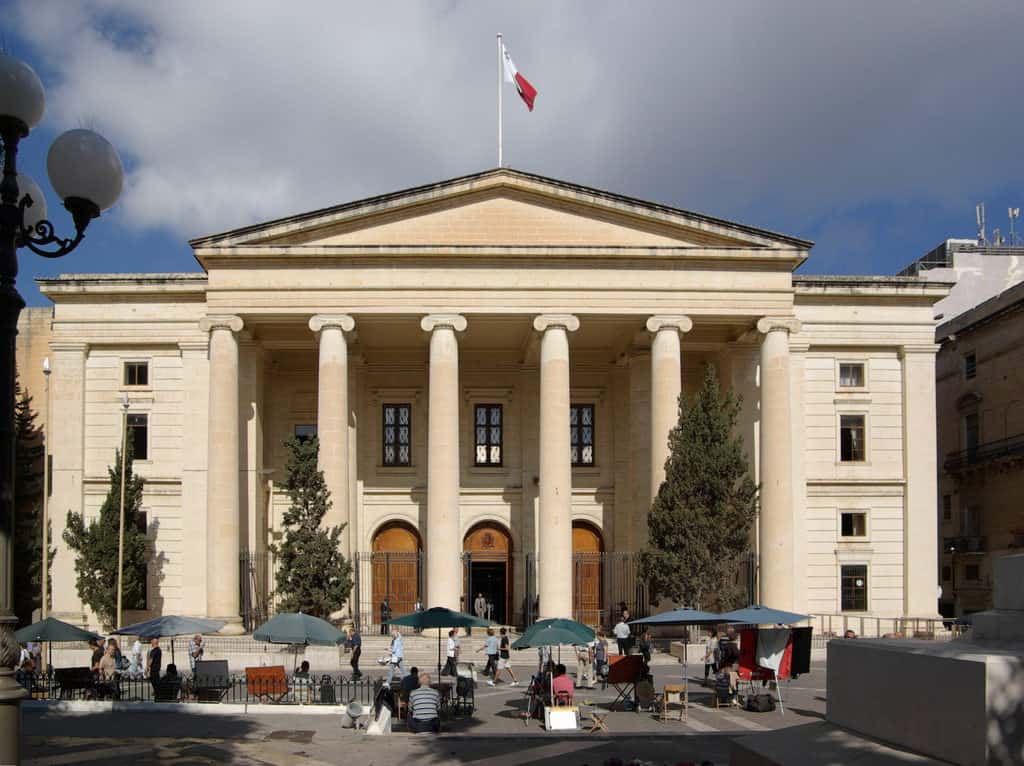
I’ve had to update the post I published yesterday surveying matters in which our electoral process falls short of international standards because a new shortfall I was never aware of emerged over the day.
The court yesterday rejected a plea from the Nationalist Party that wanted the early vote conducted inside the prisons cancelled and redone. Briefly the facts of the case are that some 180 prisoners voted in the early ballot but around 40 of them should have been excluded because they are serving long sentences.
The law says long term prisoners are not entitled to vote, but it also says that people appearing on the electoral roll have a right to vote. The Electoral Commission, agreeing these voters should never have been allowed to vote, blamed the government for not informing them about who should have been struck off.
The substance of the case is secondary. Indeed, I quite disagree with the rule that prisoners are not allowed to vote if they are serving a long sentence. I don’t see the point of the additional punishment, frankly. But that’s not relevant here.
What’s relevant is the reason the court gave for not acting on the complaint. The court said it had no jurisdiction in the matter.
There’s some doubt whether that’s quite correct. Malta’s Constitution is explicit when it says that the courts “have jurisdiction to hear and determine any reference made to it in accordance with any law relation to the election of members of the House of Representatives.” I’m not going to quibble with the learned judges. I’d no better than that guy who sat halfway through a couple of TikTok videos and thinks they can tell the WHO how to manage a pandemic.
So, let’s take the court’s decision as entirely correct and lawful. The obvious follow up question is the one asked by Malta Today’s editor today: if not the courts, who? Who gets to rule on complaints of decisions taken by the Electoral Commission?
If the courts are right, there’s no one. And that fact, in and of itself, is a shortfall in international standards required for free and fair elections. The Venice Commission’s guidelines on elections from 2002 expressly require an effective system of appeal from decisions of an electoral commission.
“The appeal body in electoral matters should be either an electoral commission or a court. For elections to Parliament, an appeal to Parliament may be provided for in first instance. In any case, final appeal to a court must be possible.” (My emphasis).
The guidelines say the appeal “procedure must be simple and devoid of formalism, in particular concerning the admissibility of appeals.” Ouch. Consider that the Electoral Commission’s argument to the court was that the Nationalist Party did not object to the names of the ineligible voters when they first appeared on the register and therefore their appeal should not be heard. That’s just the sort of formalism the guidelines warn against. And there’s a reason for that. Because it matters far more that people believe in the integrity of an election than if the right forms were filled out on time. And people’s confidence in the integrity of an election must surely be eroded when the Electoral Commission it admits it allowed ineligible voters to vote anyway.
More from the guidelines: “The appeal body must have authority in particular over such matters as the right to vote – including electoral registers – and eligibility.” Which means that if it is correct that our court does not have the authority to deal with a ballot where ineligible voters were allowed to vote, and nobody else does either, the shortfall in international standards is glaring.
“The appeal body must have authority to annul elections where irregularities may have affected the outcome. It must be possible to annul the entire election or merely the results for one constituency or one polling station. In the event of annulment, a new election must be called in the area concerned.”
That’s just what the Nationalist Party was asking for, a proportionate fix to a localised problem. They weren’t proposing the election to be cancelled or postponed. They were asking for the 180 votes cast in prison that are still as we speak sealed, alone, in a single box, to be destroyed and the ballot in prison taken again, this time with only eligible voters participating. The matter could take less than 2 hours and it could be done even before the polling stations open for the vote on Saturday, causing absolutely no impact on the timeliness of the process, but safeguarding its integrity.
You’d say it’s just 40 votes, what’s all the fuss for?
I’ll tell you what the fuss is for. Because every vote has its own value and every vote which is lawful is diluted if in the company of a vote which is not lawful. Your vote is worth less as a result.
But more seriously, I think, we find that if another government official somewhere (like the prisons or the courts director in this case) makes another “mistake”, there will be no court from which to seek redress.
Let’s think of possible “mistakes”. How about people living in Malta who are eligible to vote in local elections but ineligible to vote in national elections finding their way into the national roll by “mistake”? How about Maltese Australians who acquired their passport 40 years after surrendering it for emotional reasons and find themselves “mistakenly” eligible to vote? How about people who bought Maltese passports never meaning to and never actually living here? It’s happened before.
The court’s decision that it has no jurisdiction to consider appeals from decisions of the electoral commission is an implicit invitation to camouflage electoral fraud as “mistakes”. Because no one here seems to have the power, the authority, and the responsibility to fix those mistakes.
No wonder Robert Abela declared he trusted the electoral commission implicitly.